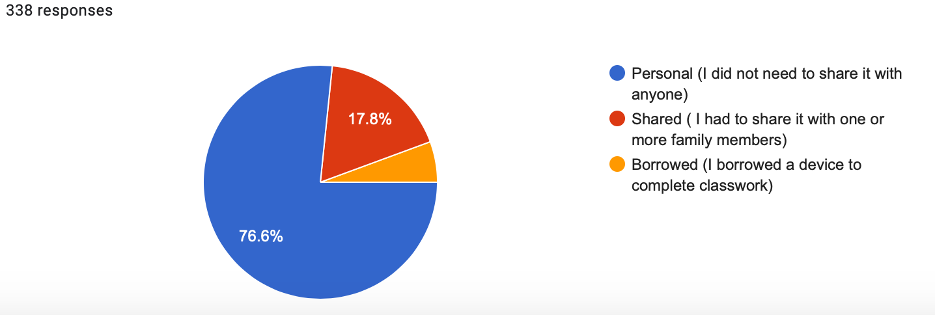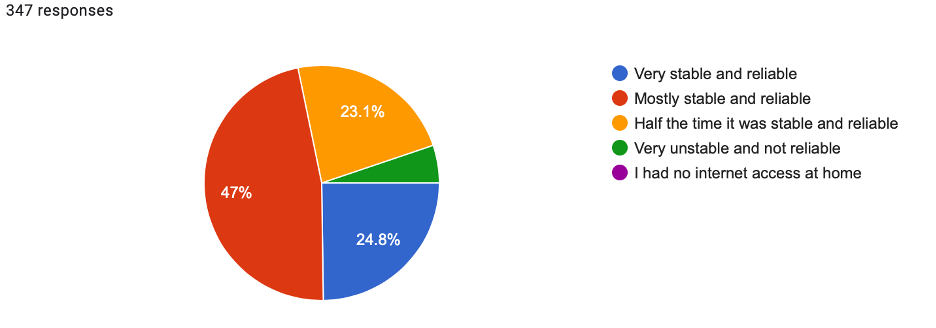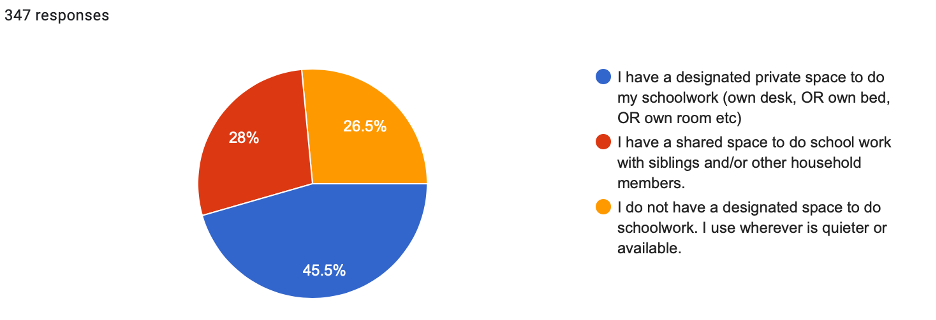Using Survey Results to Assist Low-Income Queens College SEEK Students in Obtaining Resources During the Pandemic
Students from lower socioeconomic backgrounds, many of whom are of color, continue to suffer as a result of the pandemic and need support from their colleges. The Queens College (QC) Percy E. Sutton, Search for Education Elevation and Knowledge (SEEK) Program at the City University of New York (CUNY) is an Opportunity Program. SEEK, founded in 1966, was a product of the Civil Rights movement and served to diversify the institution. Opportunity Programs, which include College Discovery (CD) at the community colleges and SEEK at the senior colleges of CUNY, have strict income requirements, serving ONLY low-income students, the population most affected by the pandemic.
At the request of New York’s governor, Andrew Cuomo, CUNY’s Chancellor Dr. Felix Matos-Rodriguez closed all campuses effective March 13, 2020. The transition to virtual learning was fraught with a host of issues. Although the issues faced by the general QC student population were difficult, those faced by SEEK students were much graver. SEEK Program personnel were aware of some of the issues students faced. However the pandemic shone light on additional problems that many did not consider.
In order to better gauge SEEK students’ needs, the SEEK Program sent a survey in May 2020 titled, “QC SEEK Distance Learning Student Survey – Spring 2020.” The survey was available for two weeks. To ensure that we received the maximum number of responses we decided to include the following confidentiality statement to the survey.
All responses are completely confidential. This survey is being conducted in order to better serve you, advocate for your needs, and assess how the shift to distance/online learning worked for you. This survey takes 7 - 10 minutes to complete. To secure the veracity of this survey, you may be asked to login using your QC email.
We received 347 responses (338 responses, 33% response rate, to the question that focused on tech resources), which is sizeable considering we have 1,032 students (according to the QC student success management system, EAB Navigate) in the QC SEEK Program. The survey included a total of seventeen (17) items: ten (10) multiple choice questions, with only one answer; four (4) Likert Scale questions; two (2) multiple choice questions with multiple answers and an (1) open-ended question. Below is an analysis of the three (3) most important academic issues students faced1.
The results of the QC SEEK Program survey highlighted three issues: 1) access to tech resources (e.g., personal computer, tablet, or laptop); 2) access to reliable internet; and 3) access to private space to do their schoolwork that SEEK students had to contend with, as a consequence of going online. We shared the survey results with key campus stakeholders, including the Provost and Vice President for Academic Affairs, Dr. Elizabeth Hendrey, the Associate Provost for Innovation and Student Success, Dr. Eva Fernandez, and the Vice President for Enrollment Management, Richard Alvarez - all of whom are supportive of SEEK students’ needs.
Survey Results: Point to Major Issues Faced by SEEK Students
The most significant survey results include three issues:
- Almost a quarter (23.4%) of SEEK students did not have their own device. Survey responses indicated that 17.8% had to share a device with a family member while an additional 5.6% had to borrow a device to complete classwork.
In the case of Personal Device: Do you have a laptop, tablet or other device to complete your schoolwork?

- 28.2% of SEEK students experienced issues associated with access to reliable internet reliability, including 23.1% indicating that their internet service was stable and reliable half the time and an additional 5.1%, indicated that their internet service was very unstable and not reliable.
Stability: How Stable and/or Reliable is your internet service?

-
More than half of respondents (54.5%) lacked private space to do their schoolwork; of those respondents, 28% have to share space with sibling(s) or other household members and an additional 26.5% did not have a designated space to do schoolwork.
Space at Home: Do you have space at home to do schoolwork?

Addressing Survey Issues
To address the problem with access to a personal computer, the Provost’s office, in conjunction with CUNY’s Chancellor’s office, purchased tablets and laptops and sent the devices via courier to students’ homes; unreliable/unstable internet service the QC Provost office, in conjunction with CUNY’s Chancellor’s office ordered Wi-Fi hotspots and had these sent to the students as well. Also, to better serve SEEK students counter the problems associated with internet reliability/stability, SEEK academic support services (includes Tutoring; Writing; Science, Technology, Engineering and Math (STEM) Centers and Supplemental Instructors) extended their hours of operations2. At the height of the pandemic in Spring 2020, not much could be done to alleviate the lack of dedicated study space at home. However, during Fall 2020, protocols were put in place that allowed for some students to gain access to private spaces on campus, thus ameliorating this issue, including Rosenthal Library and student union.
Establishing relationships, making key campus stakeholders, including the Provost office along with the Vice President of Enrollment Management, aware of the plight of QC SEEK students by using survey data, has helped QC SEEK mitigate some of the most pressing academic issues faced by students. Sharing survey results from “QC SEEK Distance Learning Student Survey – Spring 2020” were instrumental in helping low-income QC SEEK students obtain the technology needed to engage in virtual learning during unprecedented times3.
[1] Due to the brevity of the analysis, and time constraints, could not go into analysis of response to all survey questions; plan on continuing to provide analysis to more survey questions during upcoming eAIR issues.
[2] Done to reduce internet bottlenecks that happen when numerous household members are simultaneously online and to give SEEK students the ability to homeschool siblings.
[3] It is too early to assess the impact that the availability of tech resources had on SEEK student engagement and performance, this will be gauged in an upcoming survey. However preliminary qualitative information suggests that availability of tech resources had a positive effect on SEEK student engagement and performance.
